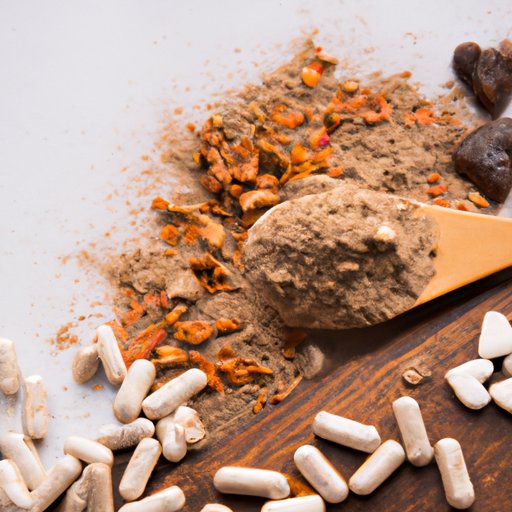Introduction
Do you have a dog that loves to eat poop? You’re not alone. Coprophagia, or the practice of eating feces, is an incredibly common problem among dogs. While it may be gross to us as humans, it’s perfectly natural for dogs and can even be beneficial in some cases. That said, there are steps you can take to discourage your pup from eating their own or another animal’s waste.
Keeping Your Dog’s Environment Clean
The first step in preventing coprophagia is to make sure your pup’s environment is clean. This means regularly cleaning up after your pup and disposing of their waste properly. Not only is this important for hygiene, but it also prevents other animals from leaving droppings around your home. This reduces the likelihood that your pup will come across something to snack on.
Feed a Nutritious Diet
Nutrition plays a big role in your pup’s behavior. If they’re not getting all the nutrients they need, they may be more likely to turn to feces for sustenance. To ensure your pup is getting proper nutrition, consider feeding them a balanced diet. This means making sure they’re getting enough protein, carbohydrates, and fats, as well as vitamins and minerals.
You should also watch out for nutrient deficiencies. A study by the University of California Davis found that dogs with iron-deficient anemia were more likely to exhibit coprophagia. If you suspect your pup is lacking in certain nutrients, speak to your veterinarian about supplementing their diet.
Engage in Regular Exercise
Regular exercise is essential for any pup’s physical and mental health. Not only does it help keep them fit and healthy, but it also provides them with an outlet for their energy. A bored pup is much more likely to get into mischief. To prevent coprophagia, make sure your pup is getting plenty of physical and mental stimulation.
This could include anything from long walks to interactive games. Consider trying different activities to find what works best for your pup. The more active they are, the less likely they are to turn to feces for entertainment.
Provide Positive Reinforcement
Positive reinforcement is key when it comes to training your pup. Whenever they display good behavior, make sure to reward them with treats and praise. This helps reinforce the behavior and encourages them to do it again in the future. It’s also important to remain consistent and always reward your pup for the same behavior.
If your pup is exhibiting coprophagia, try rewarding them when they don’t eat feces. This helps teach them that it’s not okay to eat waste and that there are other, more desirable behaviors. Over time, this should help discourage them from engaging in this behavior.
Consider Adding Supplements to Their Diet
Adding supplements to your pup’s diet can help improve their overall health and discourage coprophagia. Probiotics are particularly beneficial, as they help balance the bacteria in your pup’s gut. This can both improve digestion and reduce the urge to eat feces. Additionally, omega-3 fatty acids and zinc can help boost your pup’s immune system and prevent nutrient deficiencies.
Speak to your vet before adding any supplements to your pup’s diet. They’ll be able to recommend the right products and dosages for your pup’s individual needs.
Use Taste Deterrents
Taste deterrents are products designed to make feces unappealing to your pup. These usually come in the form of sprays or paints that you can apply to the area. The taste and smell of the product typically discourages your pup from eating the feces.
It’s important to note that these products aren’t always 100% effective. Some pups may still be willing to eat the feces despite the unpleasant taste. However, many owners report success with these products.
Conclusion
Coprophagia isn’t a pleasant problem, but it is possible to discourage your pup from eating feces. Start by keeping your pup’s environment clean and providing them with a balanced diet. Make sure they’re getting plenty of physical and mental stimulation, and don’t forget to reward them when they display good behavior. Consider adding probiotics and other supplements to their diet, and use taste deterrents if needed.
By following these steps, you’ll be well on your way to breaking your pup’s coprophagia habit. For more information, consult your veterinarian or reach out to a professional dog trainer.
(Note: Is this article not meeting your expectations? Do you have knowledge or insights to share? Unlock new opportunities and expand your reach by joining our authors team. Click Registration to join us and share your expertise with our readers.)
